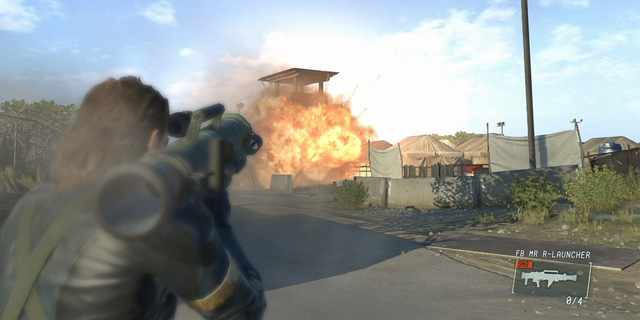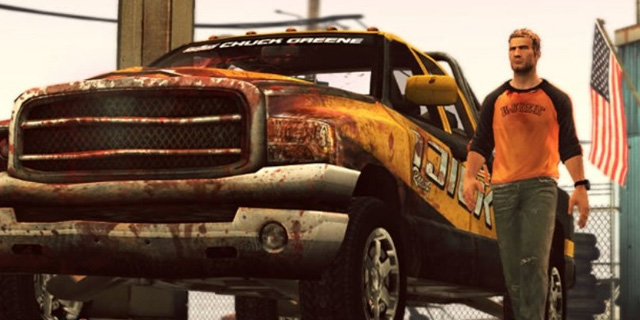
Recently we saw the release of Metal Gear Solid V: Ground Zeroes, which has caused a ruckus in the months leading up to it regarding its length and the cost of paying what many considered to be a “demo” of the upcoming The Phantom Pain. It’s an experimental approach, to be sure, but it isn’t the first example of this in recent years and it certainly won’t be the last. While some might see it as a dangerous trend, I can’t help but see it as a positive approach.
Let’s get one thing clear right off the bat: Ground Zeroes is not a demo of The Phantom Pain. A demo implies a small slice of a game released prior to (or after the release of) the actual game. It’s meant to give you a taste of the game, and the content is usually taken straight from that game. Sometimes we have demos specifically created to showcase a specific aspect of a game without spoiling its content in any way, but those examples are few and far between. Ground Zeroes is a prequel to The Phantom Pain and yes, it gives the player an idea of what to expect from the game’s improved mechanics, but it is also an introduction to the story (and overall tone) of Metal Gear Solid V.
Whether or not you agree with how people classify Ground Zeroes, anyone who actually picks it up and plays it for a decent length of time will see there’s more to it than the one-to-two-hour main mission. It offers a solid amount of content for a relatively cheap price. And despite the major gameplay improvements, it probably won’t win over anyone who isn’t already a fan of the previous games, meaning it’s most likely for fans only, for better or worse.

What’s the upside to its release? It’s a holdover until the next game, which might not even be available until 2015, providing Metal Gear fans something to keep them busy until then. Again, it’s not the most content-rich game on the market, but it’s something I personally see myself coming back to every now and again to find new secrets and new approaches to each of the game’s missions. What better way to appease fans than to give them a highly replayable prequel to a release that is still a ways off?
Capcom experimented with this back in 2010 with Dead Rising 2: Case Zero. Sure, it was a much cheaper experiment and its content wasn’t as pivotal to the story of Dead Rising 2, but it offered people an opportunity to see what was new and gave them an experience mostly unrelated to the main game in terms of content. Some even preferred it over the Dead Rising 2 proper, citing its small, dense open world as a more approachable experience than the main game’s gigantic shopping mall. So, in that sense, it won the series some new fans while also tiding over veterans.
It proved to be so successful for Capcom that it ended up releasing a second downloadable game, Case West, taking place after the events of Dead Rising 2. While the response to it wasn’t as favorable, it allowed fans of Case Zero to have another small slice of Dead Rising gameplay with some smart improvements. Capcom hasn’t attempted anything since, but I would love to see it take another swing at the pre-release prequel sometime in the future due to its now excellent track record.

I don’t want every publisher attempt something like this, but for big, long-standing franchises like Metal Gear, it’s nice to see a company attempt to provide fans something to keep them busy until the next game. The best part about this experimentation? It’s easy to ignore. Sure, you’re missing out on some story beats, but it’s mostly setting up the events of The Phantom Pain and finding a brief recap of those moments shouldn’t be difficult. If you find this practice abhorrent, as so many people seem to, nobody will blame you if you pass on rewarding Konami for it.
If Ground Zeroes had never come out, it might have made the wait for The Phantom Pain a little more difficult, but it ultimately wouldn’t have mattered. You could take the cynical approach and view it as a cheap cash-grab, but both its quality and the amount of content you get for the price are worthwhile. Giving fans an appetizer a year before the main course is not only a favorable gesture, it’s a trend I would love to see continued, assuming it’s done tastefully. It doesn’t hurt the consumer, and it gives those willing to test this grand experiment a potentially rewarding experience. It may still be an experiment, but it seems to be a worthwhile one.



















